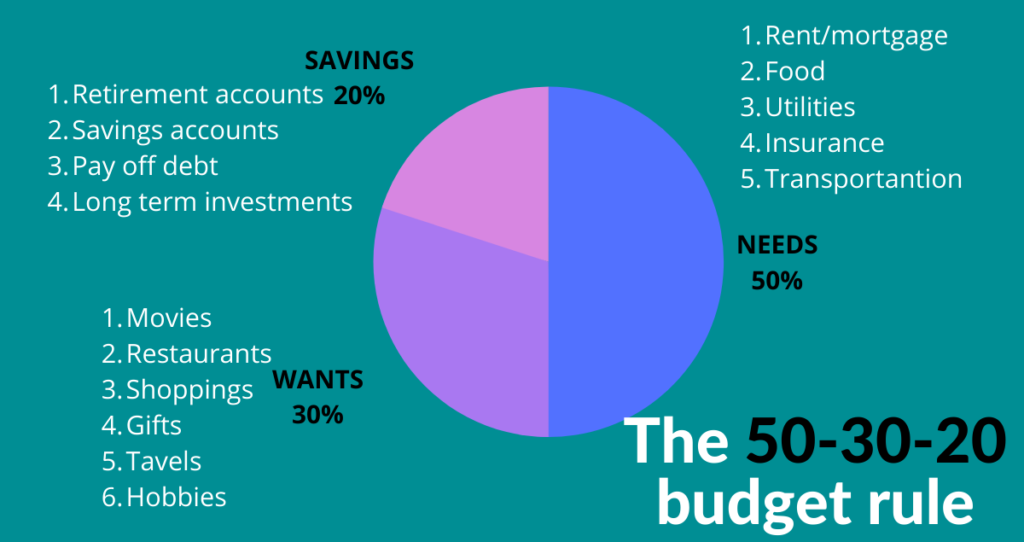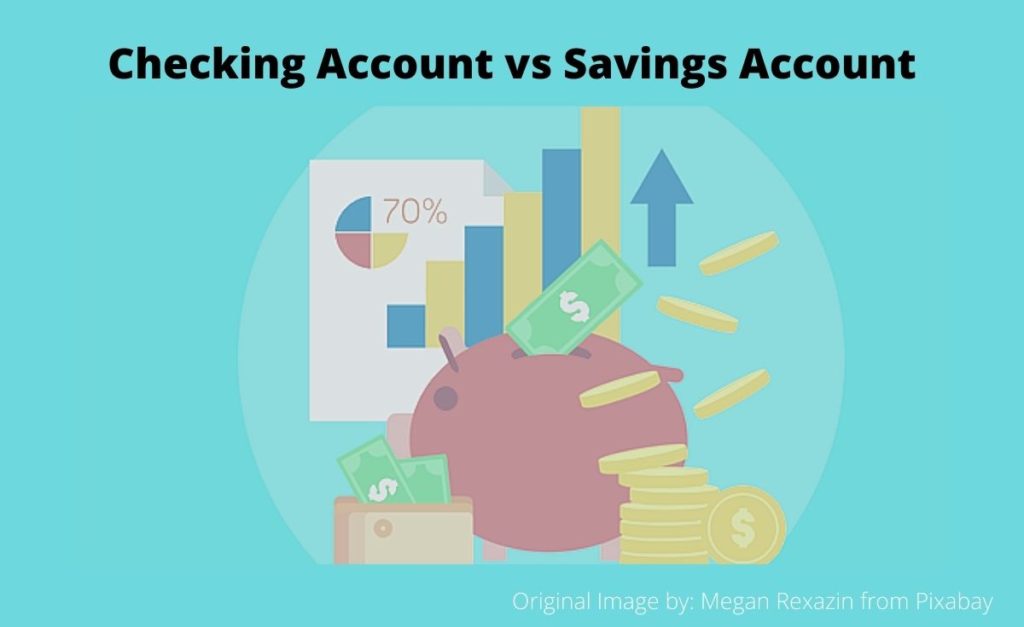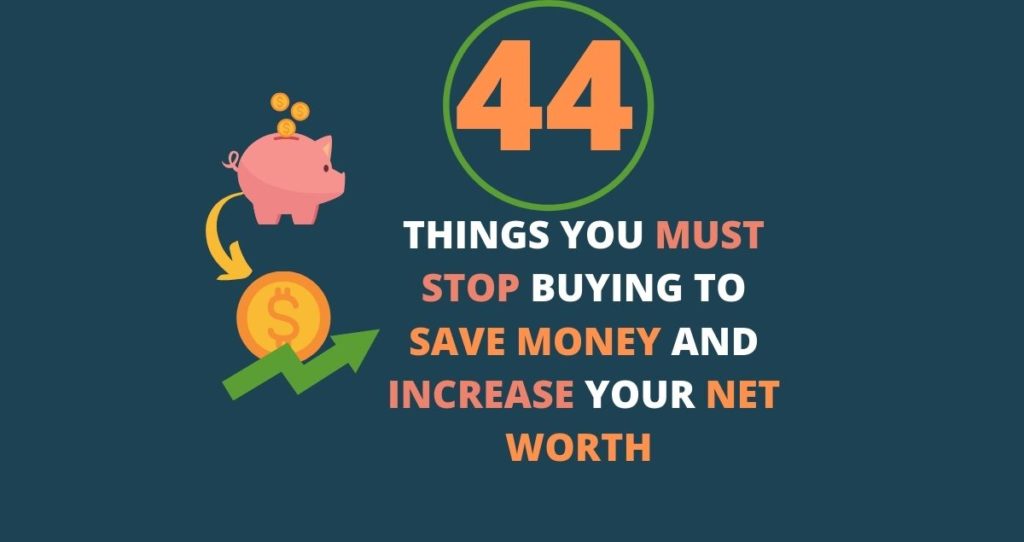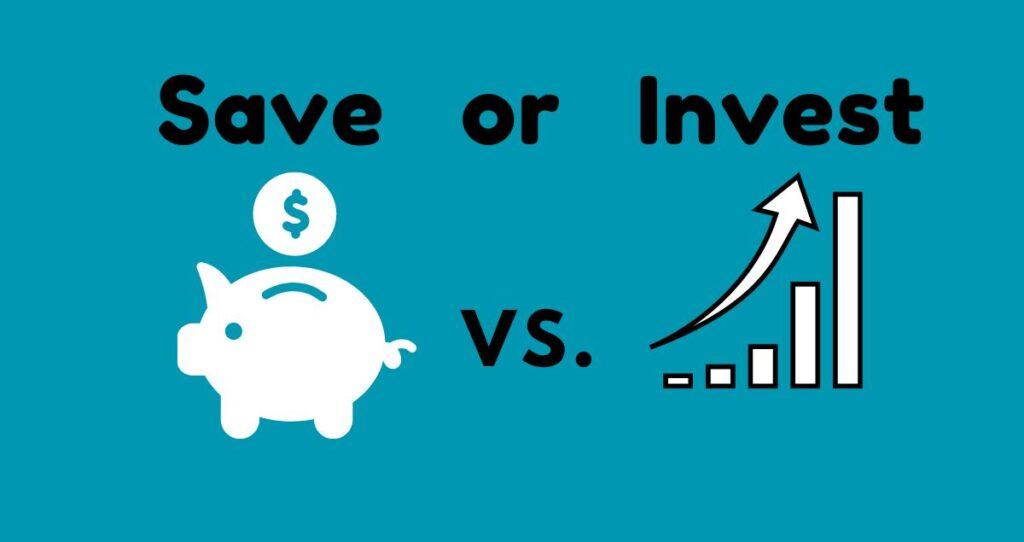No. A CD is not safer than a savings account. CDs and savings accounts come with the same safety guarantee as they are insured by either the Federal Deposit Insurance Corporation(FDIC) for bank accounts or the National Credit Union Administration(NCUA) for credit union accounts up to $250,000 per depositor per account. Whether you open a CD account or a savings account, you will get your money back up to the limit above in case your bank or credit union fails.
If you want to save up money but aren’t sure if a CD or a savings account is the right option, this article will be your guide. In this article, we’ll explore the key differences between savings accounts and CDs, the advantages and disadvantages of each, and which one might be the best fit for your needs.
Without further ado, let’s get started.
The difference between a CD and a savings account
While certificates of deposit and savings accounts guarantee the protection of your money, these two accounts differ in many ways. Their main differences come down to their earning potential, withdrawal restrictions, and other terms that govern these accounts.
For example, CD accounts offer relatively higher interest rates compared to savings accounts. In return for giving you higher rates, your money gets locked in a CD account until maturity and you cannot add more money to the account or make a withdrawal until your CD matures. Taking money from a CD before it matures often leads to paying an early CD withdrawal penalty.
On the other hand, savings accounts come with lower rates, but they allow you to make regular deposits and transfers without a penalty. Most savings accounts allow up to six transfers and withdrawals in a month.
CD vs. Savings account
| Certificate of deposit(CD) | Savings account |
| Good for a big sum of money that you don’t need for a while | Good for short-term saving goals such as car purchases, emergencies, etc. |
| Pays a higher interest rate | Comes with a lower rate |
| Fixed interest rate | Variable APY |
| Comes with an early withdrawal penalty | Allows regular withdrawal(usually up to 6 withdrawals and transfers in a month) penalty-free |
| No minimum balance | Has a minimum balance(usually $25 to $1,000) |
| You cannot make additional deposits after opening the account | Allows regular deposits |
| Might require a minimum deposit to open an account(usually $500 to $10,000) | Minimum deposit of usually $25 is required |
Understanding CDs and Savings Accounts
Understanding the differences between CDs and savings accounts is the first step in determining which investment option is right for you.
- Savings account. A savings account is a deposit account that allows you to earn interest on your funds. With a savings account, you can make deposits and withdrawals at any time without incurring penalties.
- CD account. A CD is a time deposit account that offers a fixed interest rate for a specific period. CDs require you to commit your funds for a certain length of time, which can range from a few months to several years. If you withdraw your money from a CD before the maturity date, you may face early withdrawal fees.
Savings accounts generally offer lower interest rates than CDs, but they provide greater flexibility and liquidity. On the other hand, CDs offer higher interest rates and guaranteed returns, making them a popular choice for savers who want to earn a fixed rate of return on their funds.
The benefits of choosing a CD
CDs have attractive features that make them a great option for savers who want a guaranteed rate of return. If you open a CD account, you should expect to enjoy the following benefits.
- CDs offer higher interest rates than savings accounts. This means that you can earn more interest over the life of your CD than you would with a savings account.
- FDIC insured. CDs are FDIC-insured, just like savings accounts, which means that your money is safe and protected.
- Fixed-rate return. CDs offer fixed rates of return known as annual percentage yield(APY). This means that you’ll know exactly how much interest you’ll earn before you invest your money. This can be helpful especially if you’re trying to meet a specific savings goal or planning for a future expense. Knowing exactly how much your investment will earn can make it easier to budget and plan for the future.
- Great for long-term investment. CDs are a great option for savers who want to lock in a higher rate of return for a set period of time. The longer the CD term, the higher the interest rate you’ll earn.
- Many options to choose from. There are many types of CD accounts to choose from which range from short-term to long-term CDs. You can either choose short-term or long-term CD accounts. Additionally, you will have the option to choose a non-penalty CD if you need access to your funds.
The drawbacks of choosing a CD
While CDs offer many benefits to savers, they also have some drawbacks that should be considered before opening one. The following are the disadvantages of opening a CD account you should consider.
- Early CD withdrawal penalty. If you need access to your money before the CD term is up, you will be subject to an early CD withdrawal penalty. This penalty can be significant and could eat into any interest you’ve earned, or even your principal.
- Missing opportunity for higher rates. The interest rate on a CD is fixed for the term of the CD, meaning that if interest rates rise, you’ll miss out on the higher rates. This can be frustrating if you locked in a rate for a longer term, and then interest rates increase shortly after.
- Less liquid. CDs are time deposit accounts-meaning the money is locked in the account and you won’t have access to it until maturity unless you pay a penalty or have a no-penalty CD.
- Low rates. CDs have relatively low rates compared to alternative investments such as stocks, bonds, and real estate.
The benefits of choosing a Savings Account
- Liquid. If you are looking for flexibility with your savings, a savings account could be a better fit for your financial needs. Unlike CDs, savings accounts come with easy access to your money without any penalty for early withdrawals. Typically, a savings account allows you to make up to 6 withdrawals and transfers in a month.
- You earn interest. Similar to CD accounts, savings accounts typically offer interest on your balance, although it’s usually at a lower rate than a CD. Additionally, some banks offer tiered interest rates based on your balance, meaning you can earn more interest by maintaining a higher balance.
- Good for short and long-term savings goals such as emergencies, a car payment, or a down payment on a house.
- Safety. Just like CD accounts, savings accounts are also insured by the Federal Deposit Insurance Corporation(FDIC) for up to $250,000 per account and per depositor.
The drawbacks of choosing a Savings Account
Although a savings account comes with easy access to your funds and the opportunity to earn some interest; it’s important to consider the potential drawbacks before you one. Savings account drawbacks to consider include the following.
- Savings accounts’ rates cannot keep up with inflation. Savings account rates are usually lower and very often cannot keep up with inflation. This means that the purchasing power of your savings could decrease over time.
- Applicable fees. Some savings accounts may charge fees for maintenance or withdrawing funds more than six times in a month, which can eat into any interest earned.
- A limited number of withdrawals. Savings accounts come with a limited number of withdrawals which are usually six times a month. This can restrict your ability to access your savings in case of an emergency or unexpected expense.
- Slow account growth. Savings accounts may not provide the same level of growth potential as other investments, such as stocks, real estate, or mutual funds.
Is a CD safer than a savings account?
In terms of safety, both CD and savings accounts are relatively safe when opened from FDIC-insured institutions such as banks and credit unions. The deposit in your account will be insured up to $250,000 per depositor per account.
Since neither a savings account nor a CD account is safer than the other, the deposit account you open will merely depend on your savings goals and financial situation. If you’re looking for a low-risk option to store your money for a short period, a savings account might be the way to go. However, if you’re looking to earn a higher return on investment over a more extended period, a CD might be a better option.
What happens to my CD if a bank fails?
Opening a CD account or a Savings account from a reputable bank is considered safe. But, what if the bank fails? What will happen to the money you put in the bank?
The good news is that if your bank fails, you will get your money back as your CD is FDIC-insured up to $250,000.
However, it’s essential to note that the process of getting your money back may take some time. You’ll need to file a claim with the FDIC, and the process could take several weeks or even months. In the meantime, you won’t have access to your funds, which could be a significant inconvenience.
Why would you choose a CD instead of a savings account?
While a savings account offers the convenience of accessibility and liquidity, a CD provides a higher interest rate, making it a more attractive option to those seeking higher returns on their investments. CDs typically offer fixed interest rates for a set period, allowing individuals to earn more on the money they save. Additionally, because the interest rate is fixed, there is no risk of fluctuation, providing a sense of security and predictability.
CDs also offer a level of discipline to help individuals meet their savings goals. With a savings account, it can be tempting to dip into the funds for non-essential purchases. However, with a CD, you are committed to leaving your money untouched until the maturity date, providing a greater sense of financial responsibility.
Overall, a CD may be the right choice for those seeking higher returns and a more disciplined approach to savings. However, as with any investment, it’s important to weigh the pros and cons and consider one’s own financial goals and circumstances before making a decision.
Are CDs safe if the market crashes?
What makes CDs a great alternative investment option for risk-averse investors is that the money is protected up to a certain limit. The fact that you also earn a fixed interest makes the CD account less prone to market fluctuation. This level of safety makes certificates of deposit less risky compared to stocks, bonds, and other risky investments.
Keep in mind that CD rates fluctuate based on market conditions and interest rates. In a market downturn, CD investors may experience lower returns, but their principal investment is still protected. This means that even if the bank experiences financial difficulties, investors will still receive their original investment back at maturity.
What is a good amount to put in a CD account?
When deciding how much money to put into a CD account, there are a few factors to consider which are listed below.
- The size of your pocket. You should only invest money that you don’t need access to for a set amount of time. Remember that CDs have fixed terms and early withdrawal penalties. So, make sure you won’t need that money before the term is up.
- Evaluate your overall financial goals and how a CD fits into them. If you’re saving up for a down payment on a house or a major expense in the near future, a CD might not be the best option. However, if you’re looking to grow your savings over a longer period of time, a CD could be a wise choice.
- Minimum CD deposit. While some CDs require no minimum deposit to open an account, most CD accounts require a minimum deposit that ranges from $500 to $10,000 or higher.
If you are getting started, invest at least the minimum deposit for your CD account. For example, If the account requires $1,000, make sure that you have that amount when you open an account. You can also start with a higher balance if you have a lot of cash that you are not currently using and might not need for a while.
Ultimately, there is no one-size-fits-all answer to how much money you should put into a CD account. It depends on your individual financial situation and goals. If you are not sure how much you should invest in a CD account, speak with a financial advisor to help determine the best approach for you.
Do you have to pay taxes on a CD when it matures?
A CD account is considered a type of interest-bearing investment and, as a result, you’ll be required to pay taxes on the interest earned on your CD account. The interest will be reported on a form 1099-INT and you’ll need to include this information on your tax return.
It’s worth noting that while you can’t avoid paying taxes on a CD, there are strategies you can use to potentially reduce your tax liability. One such strategy is to open a CD within an IRA or other tax-advantaged account, which can help minimize the impact of taxes on your investment.
How long can you leave money in a CD account?
Certificates of deposit offer a fixed interest rate for a specified period of time, typically ranging from three months to five years. One of the key factors to consider when deciding whether to open a CD is how long you want to leave your money invested.
If you have a short-term savings goal, such as saving for a down payment on a house or a vacation, a CD with a shorter term length may be a good option. This allows you to earn a higher interest rate than a savings account while still having access to your money within a year or two.
On the other hand, if you have a longer-term savings goal, such as funding your retirement or your child’s college education, a CD with a longer-term length may be a better fit. While you won’t have access to your money for several years, you can earn a higher interest rate than with a shorter-term CD or a savings account.
Final words
A CD account is not safer than a savings account. Matter of fact, both accounts are equally safe and are insured by FDIC up to a certain limit. When it comes to choosing between a CD and a savings account, there is no one-size-fits-all answer. Each option has its own set of benefits and drawbacks, depending on your financial needs and saving goals.
A CD may offer higher interest returns than a savings account, while a savings account offers greater flexibility. Ultimately, it’s up to you to carefully consider your own needs and choose the option that best suits your financial situation.








